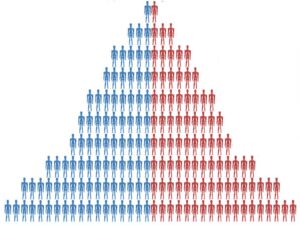Eightball was meant to be an AI tool that turned coursework into study aids, like flashcards and practice tests. Its creators, Emory University undergrads, won Emory’s pitch competition last year, earning a $10,000 grand prize and promotion from the university on its own social media channels.
Though Emory seemed to endorse Eightball at first, the university recently decided to suspend the students who created it.
Benjamin Craver, one of the suspended student founders behind Eightball, filed a lawsuit against Emory University on Monday detailing how Eightball went from a lauded, public AI tool that Emory helped fund and promote to one that the school demanded he shut down.
Craver says the suspension, which he appealed and the school reduced to a semester, affects his ability to graduate with his class, write an honor’s thesis, and apply to law school.
Craver, who took care of the marketing side of Eightball, could have been suspended for a year, and his developer co-founder, who remained unnamed in the 27-page lawsuit, could have been expelled over the school’s concern that Eightball “may” have been used to cheat — though Craver claims there’s no evidence of it.
Emory University campus (Photo by Davis Turner/Getty Images)
Per the lawsuit, Emory told Craver in November that Eightball “may be used by students to complete assignments in violation of the Undergraduate Academic Honor Code,” which prevents students from “intentionally” helping other students cheat, plagiarize, or violate the honor code.
The Emory Honor Council conducted an investigation and held a hearing in January about Eightball.
The council heard from two Emory employees as witnesses, who pointed out that Eightball’s integration with Canvas, an online platform containing course materials, was a “major concern.”
Craver claimed that he and his co-founder told the university about the possible Canvas link at the pitch competition they won in the spring of 2023. Only a handful of students actually linked to their Canvas accounts, per the filing.
After the hearing, the Honor Council stated that “Eightball is based on a blueprint which incorporates the ability to cheat” meaning that Craver and his co-founder knew that it could be used that way “and built it with intent.”
Craver’s filing noted that he was not asked about his intentions and that “none of the witnesses at any point described how Eightball could be used to cheat or presented any evidence that anyone had in fact used Eightball to cheat.”
The council recommended a year-long suspension for Craver and expulsion for his co-founder. The school has since reduced the discipline to a semester suspension for each of them. Craver is suing to not be suspended at all.
The case ties into a broader question of how to keep AI safe and accountable as more people use it. ChatGPT-maker OpenAI, one of the biggest AI companies in the world, has recently seen two AI safety research leads resign, including Jan Leike, who said he left because he felt OpenAI did not prioritize AI safety.
Related: Now that OpenAI’s Superalignment Team Has Been Disbanded, Who’s Preventing AI from Going Rogue?
Emory University did not immediately respond to Entrepreneur’s request for comment.
Read the full article here











